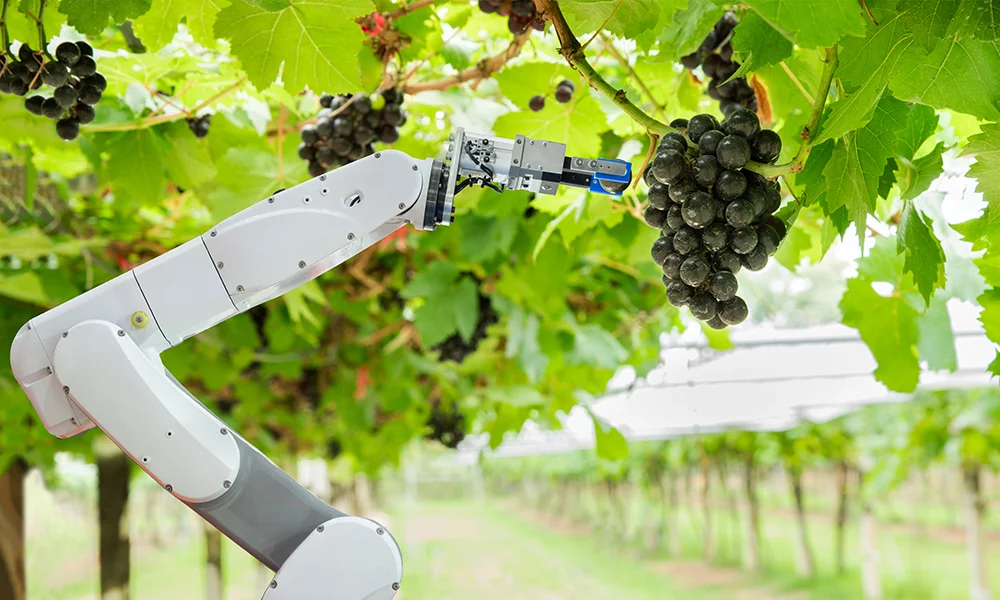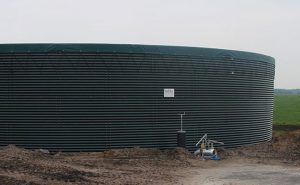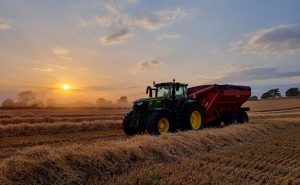Are Robots the Farmers of the Future?

The pandemic has given farmers everywhere something else to worry about: labour.
The availability of agricultural workers has become an increasingly growing concern for many farmers and growers across the nation since the UK left the European Union last year.
So, could automated technology really replace seasonal farmworkers? The simple answer to this question is, of course, yes – but it’s unlikely. Here’s why:
Automated Farming in the Short Term
It’s no secret that utilising robotics and automated technology can help crop management become more efficient and productive. There’s no denying automated technology’s place in modern farming, from sowing and weeding to spraying, picking, and even scaring birds.
There is, unfortunately, a downside to this technology: the cost. As with most robots, they come with a hefty price tag – meaning that we’ll probably see an influx in agri-tech hire companies in the future to help make the prices more manageable for day-to-day activities.
And that’s without mentioning the labour shortage. Even with the extension of the seasonal worker scheme – which allows 30,000 overseas workers to help with this year’s harvest – there are still going to be areas of the country where this help wanes or even doesn’t come. So, with farmers everywhere looking for ways to reduce their dependence on seasonal labour, there’s an opening for automated technology to take hold.
Agri-tech Could Revolutionise Farming in the Future
Looking to the industry’s future, it’s clear to see where robotic technology could “fit in” – without impacting jobs or livelihoods. Take, for example, the public enemy of farmers everywhere: crows. You wouldn’t hire someone to act as a scarecrow, but a robot could (quite literally) spend its day patrolling crops and keeping crows and other vermin at bay.
And, there would still be a place for seasonal workers, just in less-intensive and more ergonomic positions. A robot replaces a worker who picks fruit; the worker could then move into processing or packaging the produce for market.
The Company Shaking Up Cornish Farming
Kernow Robotics is a new agri-tech company with a simple goal: to combat the pressures of labour shortages with self-driving farming technology.
Founded by Ben Green in 2019, the robotic fleet isn’t designed to replace jobs but supplement them. Working with Cornish farmers to generate interest in the technology, it’s hoped that the machines could initially help with harvests and other tasks, but could eventually help with livestock management, too.
With the machines hopefully hitting the markets as early as 2024, the team at Kernow is hoping to offer their technology as a package. The farmer would contract the team to oversee work, without the farmer having to invest in a robot.
A Fully-Automated Farming Future is Bossible, But Unlikely
As an industry, agriculture is no stranger to adversity, which only became more evident during the pandemic’s height last year. We’ve talked about the impact of technology on farming in the past, but now is the time to consider the human cost.
Sure, some of the future farms may be fully-automated with no human intervention, but that doesn’t mean that every farm will be. It’s more likely that the agri-tech we see over the next few years will simply supplement existing jobs, and work alongside existing employees.
Farmers will need to embrace both old and new technologies in order to help their businesses thrive in the future – thankfully, they don’t have to worry about sentient agri-tech (yet).





